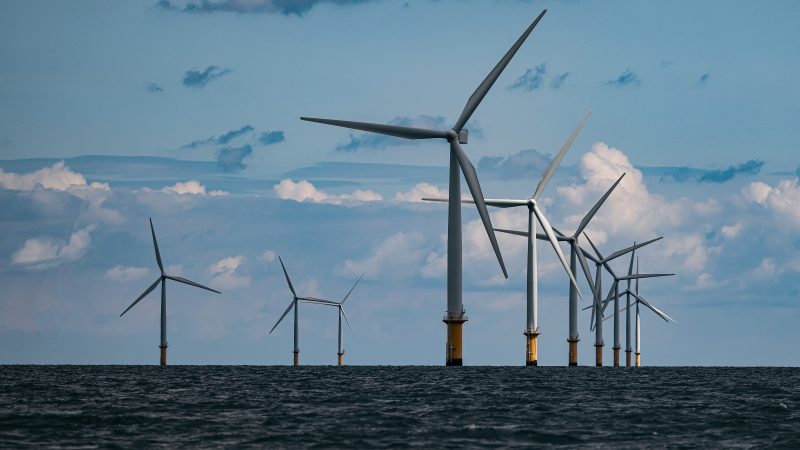
Even the most ardent Labour supporter would have to admit that the first five months of the new Government have been rocky. Waheed Ali’s wallet, Sue Gray’s defenestration, farmers on the streets of London, a ministerial resignation, and now a reset/not a reset. I think it’s fair to put most of this down to teething problems, and having to get used to Government again, with little remaining institutional experience after 14 years in the wilderness.
But Ed Miliband, in his role as Secretary of State for Energy Security and Net Zero (although based on Tory attack lines you’d think he was the Prime Minister), has been quietly getting on with the job and churning out policies and announcements. The effective onshore wind ban was removed within days, new oil and gas licenses banned, solar farms held up in planning system for years were called in and granted permission, GB Energy and the National Wealth Fund have been set up, and a range of experts have been brought in to advise the Government.
Labour have also set extremely ambitious targets, that are genuinely on the edge of what is achievable in the timeframes set. The newly announced 81 percent reduction in emissions by 2035, and of course, Clean Power by 2030 (yes, it has always been 95 percent despite what the media have said recently).
Today the government is setting out the ‘New Era of Clean Electricity’ – its plans to reach Clean Power by 2030, based on the initial recommendations made by the National Energy Systems Operator (NESO). This sets out a massive expansion in renewables, upgrading and expanding the grid, speeding up large-scale energy infrastructure projects.
While this is brilliant and long-needed, the question remains – will the Clean Power 2030 mission actually win Labour votes?
READ MORE: Starmer dismisses claims of watering down clean energy commitment
‘Energy bills will be the metric people judge progress by’
For a certain section of the electorate, absolutely it will. But for a significant number of voters, it will come down to the economy, the economy, and the economy. And how does this motivating factor translate to Clean Power 2030? Bills, bills, and bills.
This is exactly why Labour pledged to bring down people’s bills by £300 per household by 2030. They know that this will be the metric that most people judge progress by.
Is it possible to bring bills down before the next election? Yes.
READ MORE: ‘Will falling GDP and greenbelt rows may leave Keir scrambling for his hairdryer?’
It is possible to bring bills down enough to impact voting intention? Much more challenging.
One of the problems the Government will face is that there is likely to be a near-term (around 2026/27) increase in bills as part of the energy transition, largely due to an overlap period where old subsidy mechanisms expire and a new scheme comes online. There are also worries that speeding up the transition to Clean Power 2030 will increase costs in the near-term.
But Labour do have several policy tools available to them that will bring down energy bills before the next election – it all depends on how transformative they want to be in such a short timeframe.
SIGN UP: Get the best daily roundup and analysis of Labour news and comment in our newsletter
‘Most voters measure success of government on their wallets’
There are some obvious, headline grabbing policies, that can help significantly with this. Labour’s plans to dramatically increase the rollout of energy efficiency measures across the country, including aiming to lift one million homes out of fuel poverty by 2030, will be vital.
Similarly, the fact that we are transitioning away from relying on imported, expensive gas, to domestically produced renewables, will in itself cut prices, as well as ensuring we are significantly less exposed to international price spikes that drive up bills.
There are also several more intricate and complex policy levers that can be pulled: price cap reform, energy market reform, pre-payment meter cost allocations, changing subsidy mechanism incentives, and moving to more localised energy markets.
Whatever policies the Government choose to implement, if they want a positive economic story to tell at the next election, reducing people’s bills will be central to that.
Most voters measure the success of a government on their wallets – they won’t vote based on the amount of emissions reduced, unless it also reduces their bills.
For more from LabourList, follow us on Bluesky, Threads, X, Facebook, Instagram or WhatsApp.
- SHARE: If you have anything to share that we should be looking into or publishing about this story – or any other topic involving Labour– contact us (strictly anonymously if you wish) at [email protected].
- SUBSCRIBE: Sign up to LabourList’s morning email here for the best briefing on everything Labour, every weekday morning.
- DONATE: If you value our work, please donate to become one of our supporters here and help sustain and expand our coverage.
- PARTNER: If you or your organisation might be interested in partnering with us on sponsored events or content, email [email protected].




More from LabourList
‘After years of cuts, Labour’s local government settlement begins to put things right’
‘The Sherriff of Wild Westminster: what must change in elections bill’
‘The hope that kills you’: Reflections from the final day in Gorton and Denton